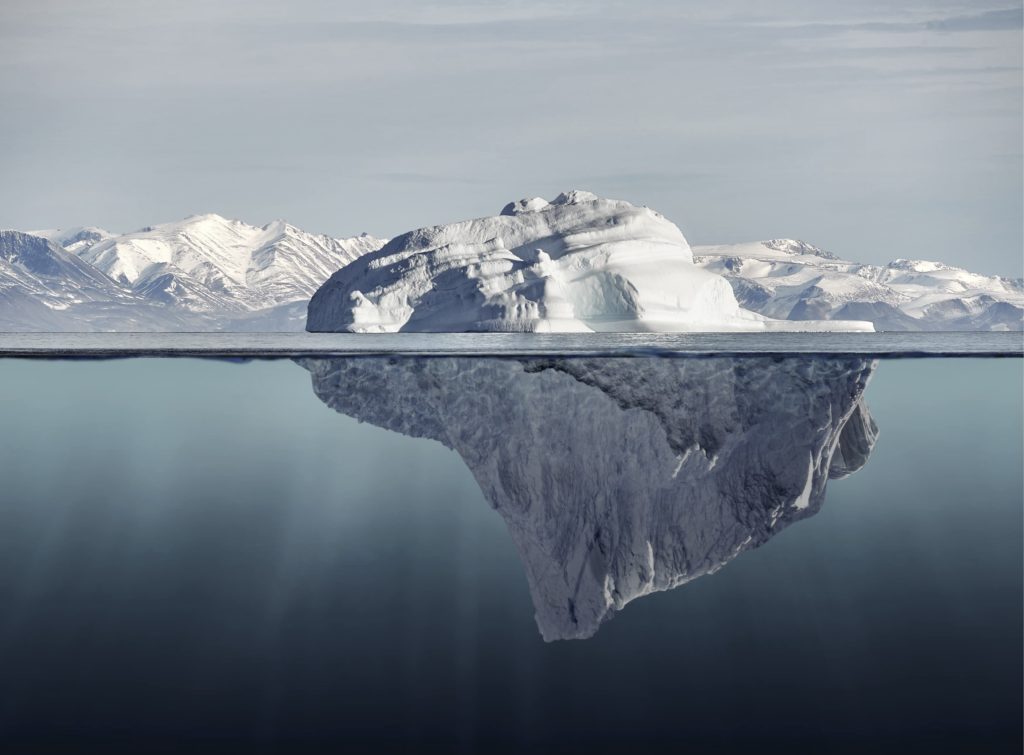We’ve curated our best editorial secrets and industry insights into a series of articles. They range from getting started through staying on track and grasping the publishing business. Put those fuzzy slippers on your feet, pull up a cushy armchair, and enjoy.
Revising With the Iceberg
You have likely heard about Ernest Hemingway’s Theory of the Iceberg. In brief, Hemingway thought you as a writer should take out seven-eighths of what you know about a subject; the top one-eighth is the tip of the iceberg, what the reader reads.

The catch is, the reader knows if you don’t know the other seven-eighths. Then they feel that your writing is not solid or substantive enough to enjoy, but rather just an ice floe on the loose. (Okay, we made up that last part…) Hemingway’s Theory of the Iceberg is also called the Theory of Omission.
He even went so far as to believe that the quality of a piece could be judged by the quality of the material the author eliminated.
That may mess with your target word count in a particular genre, but it’s more likely to mess with your faith. Can something really be gone and still be here at the same time?
I’ve seen it. I recently took a 3,000-word essay down to 1,700 words, while also adding some new material (always an option for a polished draft). I read it the other day, and I didn’t actively miss any of the good stuff that hit the cutting-room floor. What was there was everything I wanted to say.
To get there, you have to trust the process of revision, the same one that guides you to raise the best parts up a level. Those other parts, that weren’t the best parts—you don’t need them. Or rather, you don’t need them anymore. It might be difficult to part with those pieces that started a fire somewhere inside of you, even as they led to other discoveries closer to the heart of the matter.
We can probably agree, though, that to do more than one draft of something is based on the understanding that we are not going to use everything we thought of in the first place. Given this, when you embrace the Theory of the Iceberg it changes the way you view revision. You don’t have to agonize so much about whether something is in or out; now it’s more a question of whether it should be above or below the waterline.
This approach to revision takes a certain discipline. You might find yourself continually putting something back into the text, only to experience an ensuing uneasy feeling… and then remove it again. This restraint is the iceberg at work. What you are leaving is the clarity of the subject, its essence. This is no less than the difference between flow and sludge for a reader, curiosity and impatience, sparkle and doubt.
Iceberg-based decisions can cover everything from what words you use to how you understand your theme. On the most basic level, some words push other words further up towards the usable surface. You might start with some common ones that form your foundation, and then new ones arrive to rest on top of them and subsume the visible place in your text. On the other end of the spectrum, an iceberg-based approach can influence how you tackle an entire work by, say, writing the middle body of the chapters first, and then drafting an Introduction and Conclusion after what you are truly writing about becomes apparent.
 Writers can engage in iceberg-influenced preparation activities. These might include drafting a 2-3 page character study of which you only use a paragraph’s worth of words, or semi-extensive research—not to stuff what you now know into a piece—but to be able to breathe life into certain passages with the perfect detail. The maxim here is, “Use it, don’t include it.”
Writers can engage in iceberg-influenced preparation activities. These might include drafting a 2-3 page character study of which you only use a paragraph’s worth of words, or semi-extensive research—not to stuff what you now know into a piece—but to be able to breathe life into certain passages with the perfect detail. The maxim here is, “Use it, don’t include it.”
Finally, working with the iceberg requires patience. You have to really want to create a work of art as opposed to just be done. You have to want to create something solid, complete, evocative, and powerful. I know you do, I’m just elaborating on one conception of how to get there.
For my part, I can’t help but smile at any decision whereby one tone of voice, scenic twist, or structural decision is submerged in favor of one I like better—but that I would never have gotten to without what came before it.
Oh that’s very icebergy, I think…
